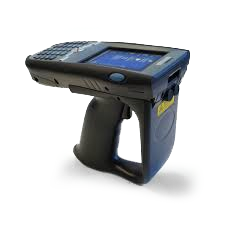
RFID Systems
RFID Systems
Radio Frequency Identification (RFID) is the reading of physical tags on single products, cases, pallets, or re-usable containers that emit radio signals to be picked up by reader devices. Wireless communication takes place between a data reader (RFID Reader) and a small transponder called tag. All information stored on RFID tags accompanies items as they travel through a supply chain or other business process. All information on RFID tags, such as product attributes, physical dimensions, prices, or laundering requirements, can be scanned wirelessly by a reader at high speed and from a distance of several meters.
RFID is becoming increasingly prevalent as the price of the technology decreases. Recent developments include increased read ranges and accuracy, better anti-collision techniques, and increased performance in demanding and previously non-ideal environments.
 The technical benefits of RFID create the basis for real business benefits. When there's less risk of errors and when there's real-time information about how the asset is being used and where it's located, RFID can increase the efficiency of processes and save money. All across the world, Radio Frequency Identification is helping businesses improve their processes and increase their efficiency.
The technical benefits of RFID create the basis for real business benefits. When there's less risk of errors and when there's real-time information about how the asset is being used and where it's located, RFID can increase the efficiency of processes and save money. All across the world, Radio Frequency Identification is helping businesses improve their processes and increase their efficiency.

